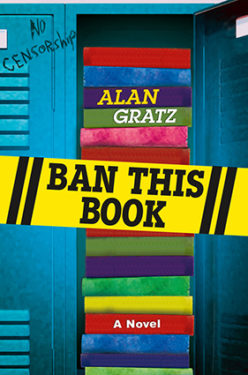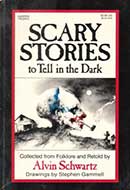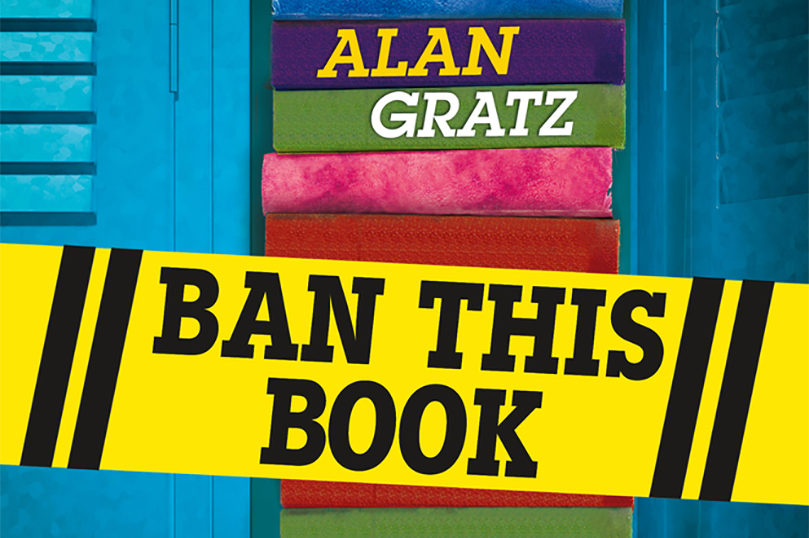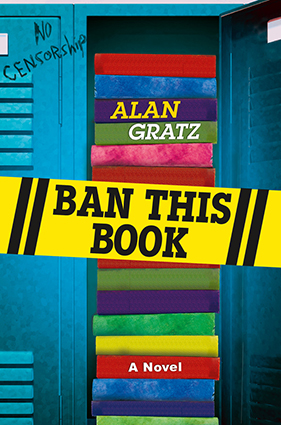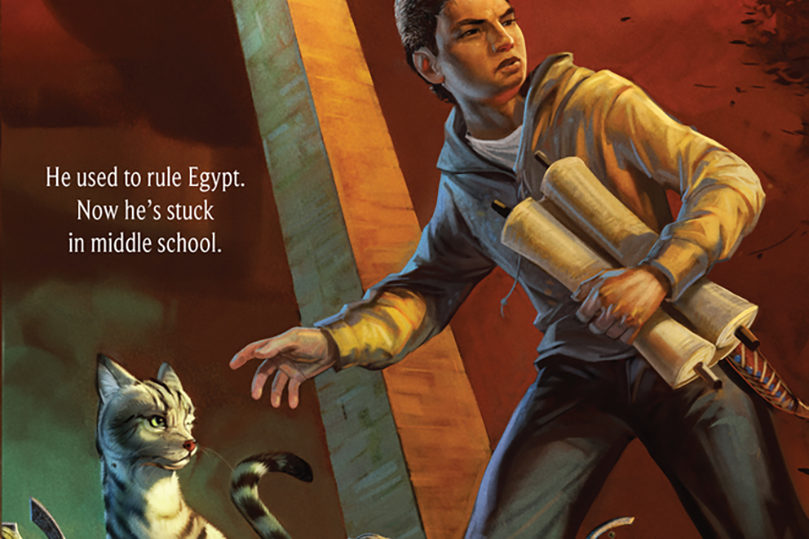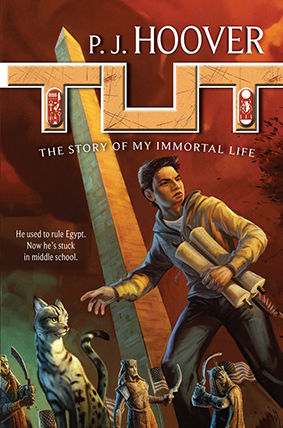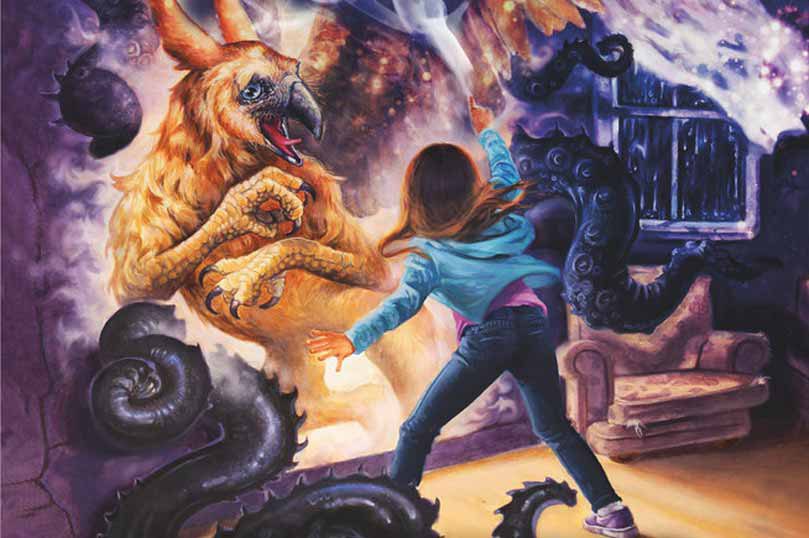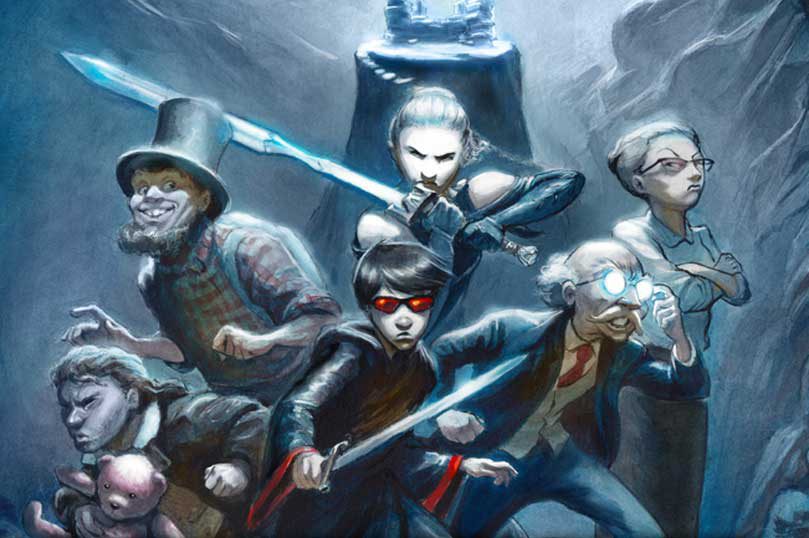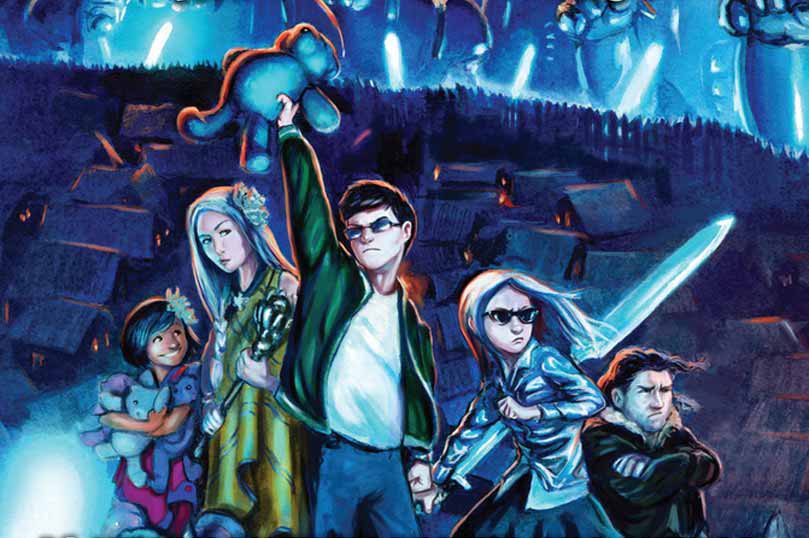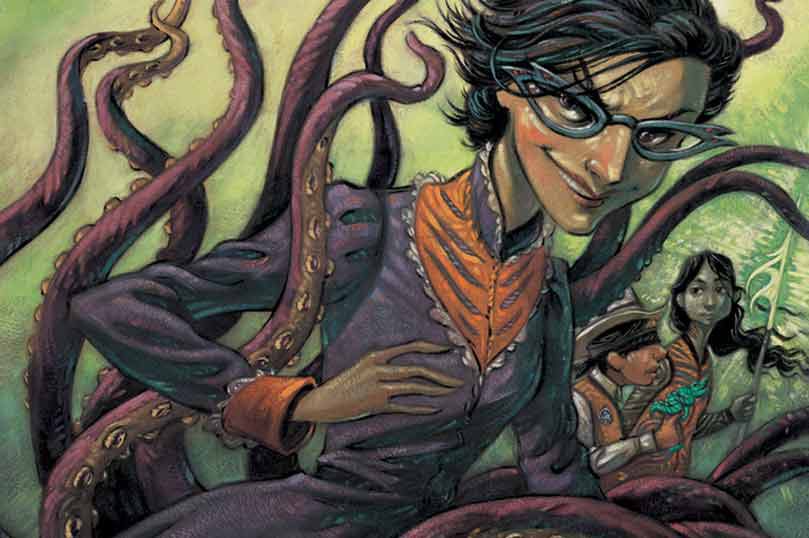opens in a new window opens in a new window
opens in a new window opens in a new window
opens in a new window opens in a new window
opens in a new window opens in a new window
opens in a new window opens in a new window
opens in a new window
 Alcatraz Smedry has successfully defeated the army of Evil Librarians and saved the kingdom of Mokia. Too bad he managed to break the Smedry Talents in the process. Even worse, his father is trying to enact a scheme that could ruin the world, and his friend, Bastille, is in a coma. To revive her, Alcatraz must infiltrate the Highbrary–known as The Library of Congress to Hushlanders–the seat of Evil Librarian power. Without his Talent to draw upon, can Alcatraz figure out a way to save Bastille and defeat the Evil Librarians once and for all?
Alcatraz Smedry has successfully defeated the army of Evil Librarians and saved the kingdom of Mokia. Too bad he managed to break the Smedry Talents in the process. Even worse, his father is trying to enact a scheme that could ruin the world, and his friend, Bastille, is in a coma. To revive her, Alcatraz must infiltrate the Highbrary–known as The Library of Congress to Hushlanders–the seat of Evil Librarian power. Without his Talent to draw upon, can Alcatraz figure out a way to save Bastille and defeat the Evil Librarians once and for all?
opens in a new windowThe Dark Talent–available September 6th—is the fifth action-packed fantasy adventure in the Alcatraz vs. the Evil Librarians series for young readers by the #1 New York Times bestselling author Brandon Sanderson. This never-before-published, fast-paced, and funny novel is now available in a deluxe hardcover edition, illustrated by Hayley Lazo. Please enjoy this excerpt.
Chapter
Doug
So there I was, standing in my chambers on the day before the world ended, facing my greatest adversary to date.
The royal wardrobe coordinator.
Janie was a perky Nalhallan woman wearing trendy Free Kingdomer clothing. Technically you could describe her outfit as a tunic—but it was only similar to a tunic in the same way that a high-end sports car is similar to a broken-down pickup. It was more like a dress with a belt at the waist, and had a large bow on one side with stylish embroidery up the sleeves.
It looked nice, making it a complete contrast to the monstrosity she held up for me to wear.
“That,” I said, “is a clown costume.”
“What?” Janie said. “Of course it isn’t.”
“It’s a white jumpsuit,” I said, “with fluffy pink bobs over the buttons!”
“White for the purity of the throne, Your Former Highness,” Janie said, “and pink to indicate your magnanimous decision to step down peacefully.”
“It has oversized floppy shoes.”
“A representation of your magnificent footprint upon the kingdom, Your Former Highness.”
“And the fake flower to squirt water?”
“So that you may shower all who approach you with symbolic waters of life.”
I raised a skeptical eyebrow at her and walked over to the bed, picking up the poofy rainbow clown wig she’d brought for me to wear.
“Obviously,” Janie said, “that is a representation of the varieties of cultures and peoples you served during your kingship.” She smiled.
“Let me guess,” I said, tossing the wig onto the bed. “The Librarians took this ‘regal’ costume worn by retired Mokian kings and, in my lands, gave it to clowns. That turned it into something ridiculous in the Hushlands, like how they named prisons after famous Free Kingdomers.”
“Uh, yeah,” Janie said. “Sure … Uh, that’s … exactly what happened.”
I frowned at her evasiveness. At the moment, I wore only a bathrobe. My old clothing—green jacket, T-shirt, jeans—was gone. My jacket had been cut up, and the rest of my clothing had been vaporized in a rather unfortunate incident containing far too much Alcatraz nudity.
Outside my room, Tuki Tuki—capital city of Mokia—was utterly silent. The drums of celebration had stopped, as had the songs of joy. Their day of celebration past, the Mokians now mourned in silence to highlight the voices among them that had been quieted.
If I was right, that silence was about to get a lot worse. I refer you to the footnote* for proof.
“What else do you have?” I asked Janie.
“Well, let’s see,” she said, obviously disappointed I wouldn’t wear the clown outfit. I might be a former king of Mokia—though I’d only served for one day—but if that was the traditional costume of my station, I’d go without.
She reached into her large trunk and pulled out what appeared to be a dog costume, with furred feet, a tail, and a headpiece with floppy ears.
“No,” I said immediately.
“But it’s the official outfit for a retired prince of—”
“No.”
Janie sighed, setting it on the bed and digging farther into her trunk.
“What is it with these ‘traditional’ outfits?” I said, poking the dog costume. “I mean, even without Librarian interference, you have to admit they’re kind of…”
“Regal?”
“Ridiculous,” I said. “It’s almost like you want your former kings to look silly.”
Janie shifted. “Uh … why would we want to do that? It’s not like we want people to see former monarchs as foolish, so a ruler who has stepped down can never change his mind, stage a coup, and seize back the kingdom.” She forced out a laugh.
“You’re a terrible liar.”
“Thank you! How about this nice cat costume? It represents the way you gracefully maneuvered the politics of the throne!”
“No animal costumes at all, please.”
She sighed, then continued digging in her trunk. A moment later she cursed under her breath. The lights at the sides of the trunk had stopped working.
Curious, I walked over. Why did she even need lights? I soon saw that the inside of the trunk was much larger than the outside would indicate. The trunk was a neat trick, but nothing I hadn’t seen before—in the Free Kingdoms, people use different varieties of glass to accomplish some pretty amazing things.*
The lights at the side were made of a special kind of glass to provide illumination—and that glass was powered by a special type of sand called brightsand. It worked somewhat like a battery for glass. (In the same way that shipwrecked people act like batteries for sharks.†)
Her brightsand for the lights appeared to have lost its charge. Fortunately, I knew something else that worked as a battery for both sand and sharks: me.
I reached out and touched the glass of her lights. I might have—somehow—broken the Smedry Talents, but I was still an Oculator. That meant I could power special types of glass.
I dredged up something inside me and pushed it out—it was a little like trying to throw up when not nauseous. The glass lights shining into Janie’s trunk burst aglow, brilliant as the sun. I yelped, startled by the sudden explosion of power. Usually there was a sense of resistance when trying to do this, but today the energy came right out.
I stumbled back as the glass plates actually melted.
“Wow,” Janie said. “Uh … you really hate these clothes, don’t you?”
“I…”
Let me pause here and explain an important point. When you are a coward like me, you should always take credit for something you didn’t intend to do. You see, part of being a coward is being too afraid of not being seen as awesome to admit to not being awesome, though you have to be careful not to let on that you’re too afraid of not being awesome to admit that not being awesome would indicate to those that want someone to be awesome that you are not as awesome as your awesomeness would otherwise indicate.
“I’m awesome,” I said.
Sorry. I got a little confused in that last paragraph. Man, this writing can be as regal as a former Mokian monarch sometimes.
Janie looked at me.
“Ah, ahem,” I said. “I saw a military uniform. What about that?”
I’d only seen a glimpse of it in the bright light: an outfit of Nalhallan design, with big epaulettes* on the shoulders and all kinds of ropes and ribbons and buttons and things, intended to make officers stand out on a battlefield and get shot first so the soldiers doing the real fighting are safe.
“I suppose,” Janie said, “I can try to dig that out—but I’ll need to install some new lights first.” She glanced at the bubbling globs of glass on the sides of her trunk.
“Uh, thanks,” I said.
“You sure you don’t want a frog costume? Technically it’s supposed to be for a retired king who served at least seven days, but you could swing it.”
“No thanks.” I hesitated, but was too curious not to ask. “Let me guess. The frog costume represents how a monarch leaps hurdle after hurdle as a leader?”
“Nah. It’s symbolic of how you survived your kingship without croaking.”
Of course.
Janie got out another pack and began digging around for some lights. Embarrassed at having ruined her glass, I made an excuse about needing to use the restroom and slipped out. In truth, I just wanted to be alone for a little while.
The hallway outside my room was decorated with a woven mat, the walls constructed of large reeds, the roof thatched. I didn’t see a soul. The place was freakishly quiet, and I found myself tiptoeing. (A common action of cowards like me.)
It seemed to me that with everything that had happened in the last few days, I should be doing something far more important than deciding what to wear. Tuki Tuki was safe, but I hadn’t won this war. Not as long as Bastille and so many Mokians lay in comas, Librarians still ruled the Hushlands, and there were footnotes lying scattered around unused.*
We needed to chase down my father and stop him from putting his insane plan into motion. Though … maybe his plan wouldn’t work anymore. I’d broken the Talents, after all. Maybe that would stop him from giving Talents to everyone else.
No, I thought. This is my father. He’d bested the undead Librarians of Alexandria and had uncovered the secret of the Sands of Rashid. He would be able to do this too. If we didn’t stop him.
I heard voices in the hallway, so I followed them to a spacious room topped by lazy ceiling fans. Inside, my grandfather stood before a large wall of glowing glass that showed the faces of numerous people in a variety of ethnic costumes. I recognized them as the monarchs of the Free Kingdoms—I’d saved their lives at one point. Maybe two. I lose count.
Bald on top, my grandfather wore a bushy mustache and had an equally bushy ring of white hair that puffed out along the back of his head, like he’d been in an epic pillow fight and a mass of stuffing had gotten stuck to his scalp. He was, as always, decked out in a stylish tuxedo.
“Now, I don’t want to act ungrateful,” my grandfather was saying to the monarchs, “but … Accountable Alatars, people! Don’t you think you’re a little late?”
“Mokia asked for aid,” said Queen Kamiko, an Asian-looking woman in her fifties.
“Yes,” agreed a man in a European-looking crown. I didn’t know his name. “You wanted armies. We’re sending them, along with the air guard, to help you Smedrys. What is the complaint?”
“My complaint?” Grandpa Smedry sputtered. “The war is over! My grandson won it!”
“Yes, well,” said a dark-skinned monarch in a colorful hat. “Certainly there is still work to be done. Cleanup, reconstruction, that sort of thing.”
“You cowards,” I said, stepping into the room.
Trust me. I know how to spot cowards.
My grandfather looked toward me, as did the monarchs on the screen. The Free Kingdomers liked to claim that they are nothing like the Hushlanders, but things like this glass wall—which was Communicator’s Glass, designed for speaking over long distances—are very similar to Hushlander technology. The two could be sides to the same coin.
The same went for those monarchs and the leaders of the Librarians. Politicians, it seemed, often shared more with one another than they did with the people they represented.
“Lad…” Grandpa Smedry said.
“I will speak to them,” I said, stepping up beside him.
“But—” Grandpa said.
“I won’t be shushed!”
“I wasn’t going to shush you,” Grandpa said. “I was going to point out that you’re addressing the world’s collected monarchs in a bathrobe.”
Uh …
Right.
“It’s a representation of my disdain for their callous disregard for Mokian lives!” I proclaimed, raising a hand with my finger pointed toward the sky.
Thanks, Janie.
“Young Smedry,” said Kamiko, “we are grateful for what you have done, but you have no right to speak to us in such a way!”
“I have every right!” I snapped. “I am a former king of Mokia.”
“You were king for one day,” said a tiny dinosaur. I knew that one; Supremus Rex, monarch of the dinosaurs.
“One day is long enough to get some of the stench on me,” I said, “but brief enough to not be overwhelmed by it. You send armies now? After the fight is won, and you realize that an alliance with the Librarians is impossible? I can’t believe that you—”
“I don’t have to listen to this,” Kamiko interrupted, turning off her section of the glass. The others followed suit, switching off their screens until only one remained, a man with red hair and beard, looking sorrowful. Brig, the High King, Bastille’s father.
I felt my anger fade, and I looked sheepishly at my grandfather. I’d stormed in and ruined his meeting.
“That was quite energetic!” Grandpa Smedry said. “I approve.”
“I don’t know,” another voice said from the back of the room. My uncle Kaz was there, sitting and sipping a fruit drink, his adventuring hat on the table beside him. Four feet tall—and please don’t call him a dwarf or a midget—Kaz was dressed in a leather jacket and sturdy hiking boots. He had a pair of Warrior’s Lenses hanging from his pocket; he wasn’t an Oculator, but he was pretty handy in a fight.
Kaz raised his cup toward me. “It was good calling them cowards, Al, but I think you could have slipped another insult or two in before they switched off their glass. And the send-off … yeah, that wasn’t suitably theatrical at all.”
“True, true,” Grandpa said. “The dramatic effect of your intrusion could have been much greater, and you could have been far more annoying.”
And that’s probably the best introduction I could give you to my family. In the last six months of my life, I’d taunted undead Librarian ghosts, recklessly used my Talent to lay waste to armies, run headlong into danger a dozen times over, and aggravated some of the most powerful Librarians who have ever lived—but compared to the rest of the Smedry clan, I’m the responsible, cool-headed one.
“I doubt insulting the monarchs would do any good, Leavenworth,” the High King said to my grandfather, speaking through his glowing pane of glass. “They are afraid. A few days ago the world made sense to them—but now everything has changed.”
“Because the Librarians were driven off?” I asked. Bastille’s father looked very, very tired, with red eyes and drooping features.
“Yes,” the king said to me. “Driven off by one person, and by a power they didn’t know he had—a power they can’t imagine or understand. They’re afraid that what you have done will enrage the Librarians.”
“Mokia was their sacrifice,” Grandpa Smedry said, angry. “They foolishly hoped it would satiate the Librarians. And now they’re convinced that the Librarians will return in force, determined this time to crush the entirety of the Free Kingdoms.”
Politics.
I hate politics. When I’d first learned about the Free Kingdoms, I’d imagined how wonderful and amazing they’d be. I spent two entire books trying to get there, only to find that—despite their many wonders—the people in them were … well, people.* Free Kingdomers had all the flaws of people in the Hushlands, except with sillier clothing.
I thought of Bastille, unconscious. She’d be so embarrassed to be seen that way. Those monarchs had abandoned her, and Mokia, for their own petty games. It made me angry. Angry at the monarchs, angry at the Librarians, angry at the world. I sneered, stepping forward, and slapped my hands against the Communicator’s Glass on the wall.
“Lad?” Grandpa Smedry asked.
The glass beneath my fingers began to glow.
Perhaps I should have been wary, considering what I’d done to Janie’s lights. I just wanted to do something. I powered the wall glass. I threw everything I had into those panels, causing them to shine brightly.
“You can’t call them back,” Kaz said, “not unless they allow you to—”
I pushed something into that glass, something powerful. I had certain advantages, being raised in the Hushlands. Everyone in the Free Kingdoms had expectations about what was and wasn’t possible.
I was too stupid to know what they knew, and I was too much a Smedry to let that bother me.
What I did next defies explanation. But since it’s my job to try to convey difficult concepts to you, I’m going to try anyway. Imagine jumping off a high building into a sea of marshmallows, then reaching out with a million arms to touch the entire world, while realizing that every emotion you’ve ever had is connected to every other emotion, and they’re really one big emotion, like an emotion-whale that you can’t completely see because you’re up too close to notice anything other than a little bit of leathery emotion-whale skin.
I let out a deep breath.
Wow.
In that moment, the squares of Communicator’s Glass each winked back on. They showed the rooms of the monarchs, most of whom were still there, though they’d stood from their chairs to speak with their attendants. One had gotten a sandwich. Another was playing solitaire.*
They looked at me, and I somehow knew that my face had appeared on each of their panes of glass, large and dominating.
“I,” I told them, “am going to the Highbrary.”
Is that my voice?
“You are worried I’ve started something dangerous,” I said. “You’re wrong. I’m not starting it, I’m finishing it. The Librarians have terrorized us for far too long. I intend to make certain they are the ones who are frightened and they are the ones, for once, who have to worry about what they’re going to lose.
“Some of you are scared. Some of you are selfish. The rest of you are downright ignorant. Well, you’re going to have to put those things aside, because you can’t ignore what’s coming. I know something the Librarians don’t. The end is here. You can’t stop this war from progressing. So it’s time for you to stand up, stop whining, and either help or get out of my way.”
I let go of the glass. The images winked off, the wall turning dark.
“Now that,” Kaz said from behind, “is how you end a conversation with style!”
- People who use footnotes in books are very smart, and you can trust what they say.
- Like adding footnotes to books.
- Footnote: It’s true. Think about it.
- Epaulettes are those things soldiers wear on their shoulders to make them look more important. Nothing proclaims “look how macho I am” more than a good set of epaulettes. Other than, I guess, a big sign that reads “look how macho I am,” but we wouldn’t want to be flagrant about it, would we?
- There. That’s better.
- I guess I was expecting marmosets?
- Yes, solitaire. What, you think kings and queens are always doing important stuff, like chopping off heads and invading neighboring kingdoms?
Copyright © 2016 by Dragonsteel Entertainment, LLC
Buy The Dark Talent here:
opens in a new window opens in a new window
opens in a new window opens in a new window
opens in a new window opens in a new window
opens in a new window opens in a new window
opens in a new window opens in a new window
opens in a new window
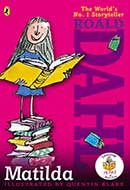 opens in a new windowMatilda by Roald Dahl
opens in a new windowMatilda by Roald Dahl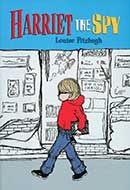 This novel is about an eleven-year-old girl who spies on her classmates and inadvertently sets off a firestorm when her book of her brutally honest, and sometimes cruel, observations about her classmates is discovered. Parents challenged the book for supposedly setting a bad example for children, supposedly encouraging them to spy, lie, and swear.
This novel is about an eleven-year-old girl who spies on her classmates and inadvertently sets off a firestorm when her book of her brutally honest, and sometimes cruel, observations about her classmates is discovered. Parents challenged the book for supposedly setting a bad example for children, supposedly encouraging them to spy, lie, and swear.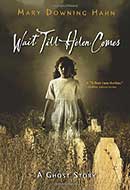 A story about a girl who finds a ghost in her new house, Wait Till Helen Comes deals with heavy issues of death and suicide, but another parent objected to the book’s portrayal of the main character talking to the dead. “The act of talking to the dead is called spiritism and is condemned in the Bible Galation 5:19-21,” the father of a student wrote in his official complaint.2
A story about a girl who finds a ghost in her new house, Wait Till Helen Comes deals with heavy issues of death and suicide, but another parent objected to the book’s portrayal of the main character talking to the dead. “The act of talking to the dead is called spiritism and is condemned in the Bible Galation 5:19-21,” the father of a student wrote in his official complaint.2 It’s Perfectly Normal is a book written for kids ages 10 and older to teach them about sexual health, relationships, and puberty. It’s been banned across the country for content that’s inappropriate for children, both for the frank discussion of sexuality and the inclusion of (non-graphic) illustrations of naked people. The book is intended as an educational resource for kids about a range of topics, including sexual orientation, gender identity, and abuse.
It’s Perfectly Normal is a book written for kids ages 10 and older to teach them about sexual health, relationships, and puberty. It’s been banned across the country for content that’s inappropriate for children, both for the frank discussion of sexuality and the inclusion of (non-graphic) illustrations of naked people. The book is intended as an educational resource for kids about a range of topics, including sexual orientation, gender identity, and abuse.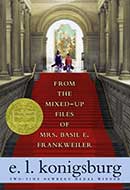 The removal of this book from her school library is what kicks off Ban This Book’s heroine’s act of protest. Complaints about From the Mixed-up Files of Mrs. Basil E. Frankweiler primarily object to the rest on the fear that children might imitate the heroine, who runs away from home to live inthe Metropolitan Museum of Art in New York City. Indeed, over the years many children have actually written to the Met to profess their desire to live at the museum.
The removal of this book from her school library is what kicks off Ban This Book’s heroine’s act of protest. Complaints about From the Mixed-up Files of Mrs. Basil E. Frankweiler primarily object to the rest on the fear that children might imitate the heroine, who runs away from home to live inthe Metropolitan Museum of Art in New York City. Indeed, over the years many children have actually written to the Met to profess their desire to live at the museum.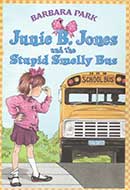 The Junie B. Jones series is written in the voice of its five-year-old heroine – who doesn’t always use proper English. Some adults have protested that the book’s use of childish vernacular might inspire kids to use bad spelling and grammar. One complainant claimed that the series, which shows Junie sometimes acting out, “sends the message that… emotions such as hate are fine.”3
The Junie B. Jones series is written in the voice of its five-year-old heroine – who doesn’t always use proper English. Some adults have protested that the book’s use of childish vernacular might inspire kids to use bad spelling and grammar. One complainant claimed that the series, which shows Junie sometimes acting out, “sends the message that… emotions such as hate are fine.”3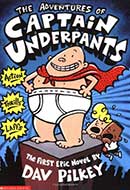 The long-running series of Captain Underpants books has been targeted for being inappropriate or unsuited to the age group, usually due to its crude humor. Others have claimed that the series encourages children to disobey authority. More recently, the 12th book in the series attracted some attention when a character was revealed to be gay.
The long-running series of Captain Underpants books has been targeted for being inappropriate or unsuited to the age group, usually due to its crude humor. Others have claimed that the series encourages children to disobey authority. More recently, the 12th book in the series attracted some attention when a character was revealed to be gay.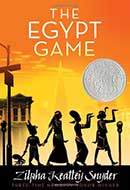 This Newberry Award-winning book about a group of children who create an imaginative game based on Ancient Egypt was challenged on religious grounds for depicting occult rituals involving Ancient Egyptian gods. The parent who challenged the book said: “I don’t believe any student should be subjected to anything that has to do with evil gods or black magic.” (Newsletter on Intellectual Freedom, Jan. 2010, p. 17.)
This Newberry Award-winning book about a group of children who create an imaginative game based on Ancient Egypt was challenged on religious grounds for depicting occult rituals involving Ancient Egyptian gods. The parent who challenged the book said: “I don’t believe any student should be subjected to anything that has to do with evil gods or black magic.” (Newsletter on Intellectual Freedom, Jan. 2010, p. 17.)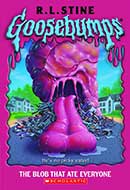 This beloved series of horror stories made the top twenty most-challenged books list between 1990 to 1999. Some parents feared the series was too frightening for kids, while others objected that the books contained Satanic themes or depictions of the occult.
This beloved series of horror stories made the top twenty most-challenged books list between 1990 to 1999. Some parents feared the series was too frightening for kids, while others objected that the books contained Satanic themes or depictions of the occult.

